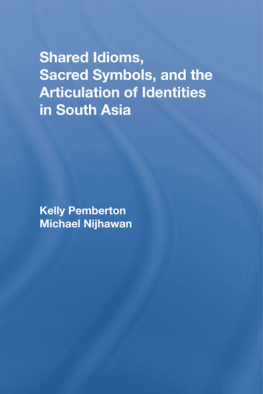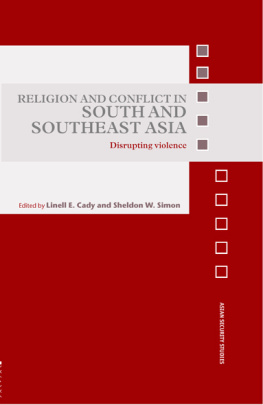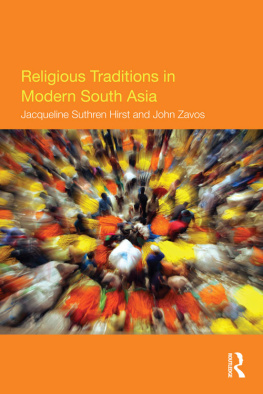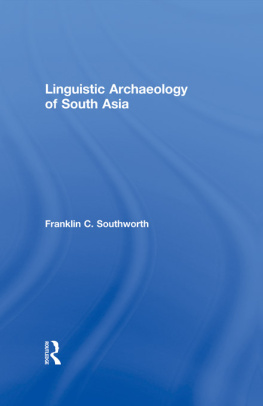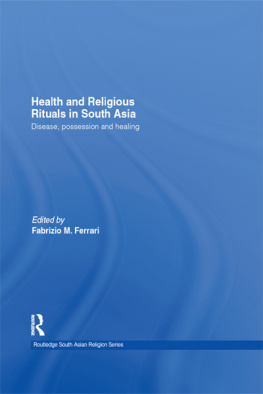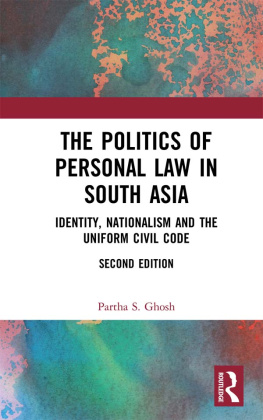Kelly Pemberton - Shared Idioms, Sacred Symbols, and the Articulation of Identities in South Asia
Here you can read online Kelly Pemberton - Shared Idioms, Sacred Symbols, and the Articulation of Identities in South Asia full text of the book (entire story) in english for free. Download pdf and epub, get meaning, cover and reviews about this ebook. City: London, year: 2008, publisher: Routledge, genre: Religion. Description of the work, (preface) as well as reviews are available. Best literature library LitArk.com created for fans of good reading and offers a wide selection of genres:
Romance novel
Science fiction
Adventure
Detective
Science
History
Home and family
Prose
Art
Politics
Computer
Non-fiction
Religion
Business
Children
Humor
Choose a favorite category and find really read worthwhile books. Enjoy immersion in the world of imagination, feel the emotions of the characters or learn something new for yourself, make an fascinating discovery.
- Book:Shared Idioms, Sacred Symbols, and the Articulation of Identities in South Asia
- Author:
- Publisher:Routledge
- Genre:
- Year:2008
- City:London
- Rating:4 / 5
- Favourites:Add to favourites
- Your mark:
Shared Idioms, Sacred Symbols, and the Articulation of Identities in South Asia: summary, description and annotation
We offer to read an annotation, description, summary or preface (depends on what the author of the book "Shared Idioms, Sacred Symbols, and the Articulation of Identities in South Asia" wrote himself). If you haven't found the necessary information about the book — write in the comments, we will try to find it.
How do text, performance, and rhetoric simultaneously reflect and challenge notions of distinct community and religious identities? This volume examines evidence of shared idioms of sanctity within a larger framework of religious nationalism, literary productions, and communalism in South Asia. Contributors to this volume are particularly interested in how alternative forms of belonging and religious imaginations in South Asia are articulated in the light of normative, authoritative, and exclusive claims upon the representation of identities. Building upon new and extensive historiographical and ethnographical data, the book challenges clear-cut categorizations of group identity and points to the complex historical and contemporary relationships between different groups, organizations, in part by investigating the discursive formations that are often subsumed under binary distinctions of dominant/subaltern, Hindu/Muslim or orthodox/heterodox. In this respect, the book offers a theoretical contribution beyond South Asia Studies by highlighting a need for a new interdisciplinary effort in rethinking notions of identity, ethnicity, and religion.
Kelly Pemberton: author's other books
Who wrote Shared Idioms, Sacred Symbols, and the Articulation of Identities in South Asia? Find out the surname, the name of the author of the book and a list of all author's works by series.

